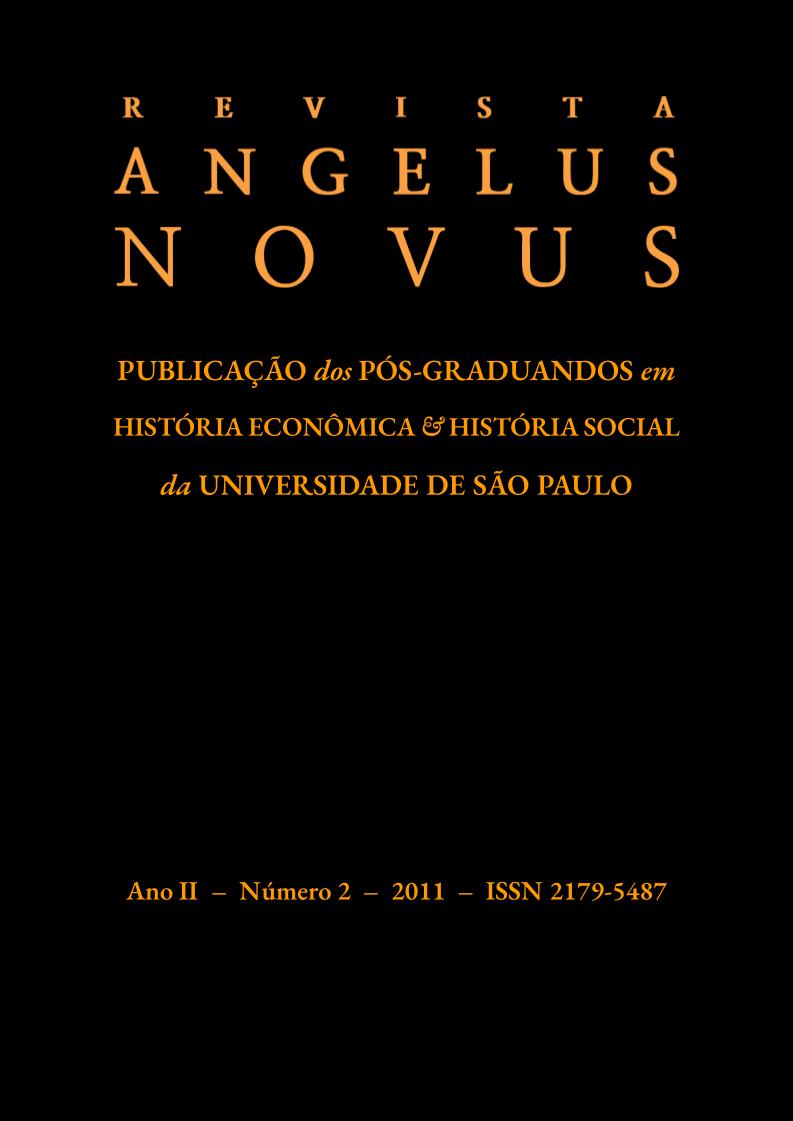“Dorica Musa”
crítica jurídica e memória cultural no livro de emblemas “Pegma”, de Pierre Coustau (1555)
DOI:
https://doi.org/10.11606/ran.v0i2.88841Palabras clave:
Pierre Coustau, Emblemática, Justiça, HesíodoResumen
O artigo aborda o livro “Pegma cum narrationibus philosophicis” (1555), de Pierre Coustau, e analisa seus aspectos textuais e iconográficos – especificamente o 39º emblema, intitulado “Dorica Musa”. O emblema em questão realiza uma forte crítica ao procedimento jurídico do seu tempo, e para tanto recorre às imagens e palavras da literatura grega clássica. O rastreamento do tema levou-nos a Hesíodo, poeta grego do século VIII a. C., configurando assim determinada memória cultural do mundo antigo, que Pierre Coustau atualiza para possibilitar a instrumentalização retórica deste conhecimento disponível, utilizado no contexto contemporâneo do autor.
Descargas
Descargas
Publicado
Número
Sección
Licencia
Derechos de autor 2014 Angelus Novus (São Paulo)

Esta obra está bajo una licencia internacional Creative Commons Atribución-NoComercial 4.0.
1. Proposta de Política para Periódicos de Acesso Livre
Autores que publicam nesta revista concordam com os seguintes termos:
- Autores mantém os direitos autorais e concedem à revista o direito de primeira publicação, com o trabalho simultaneamente licenciado sob a Creative Commons Attribution License que permitindo o compartilhamento do trabalho com reconhecimento da autoria do trabalho e publicação inicial nesta revista.
- Autores têm autorização para assumir contratos adicionais separadamente, para distribuição não-exclusiva da versão do trabalho publicada nesta revista (ex.: publicar em repositório institucional ou como capítulo de livro), com reconhecimento de autoria e publicação inicial nesta revista.
- Autores têm permissão e são estimulados a publicar e distribuir seu trabalho online (ex.: em repositórios institucionais ou na sua página pessoal) a qualquer ponto antes ou durante o processo editorial, já que isso pode gerar alterações produtivas, bem como aumentar o impacto e a citação do trabalho publicado (Veja O Efeito do Acesso Livre).






